Send us your testimonial if you are a former or current BUKA fellow!
- Naomi Wachs | USA
2015/2016 Fellow
The BUKA fellowship was a life-changing opportunity for me both personally and professionally and one of the most impactful and influential times of my life. I was able to learn more about my field of work and clarify my professional goals, as well as form ongoing connections and relationships in Germany. It expanded my sense of self as a citizen of the world, both living in a new culture, learning a new language, but also through the deep and meaningful friendships I formed with the other fellows and learning about their culture, worldview, and sense of self. I have maintained close connections with my host and the other fellows from my year and subsequent years, have visited them in their home countries, and we have all grown as people through the experience of being a BUKA and our relationships.
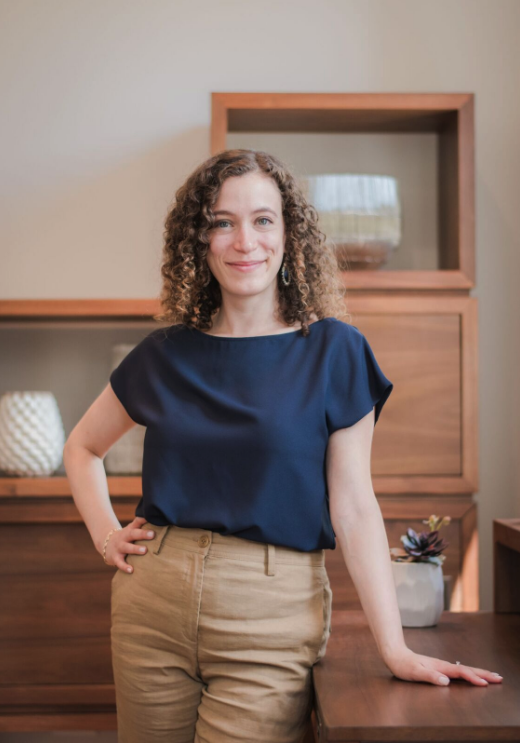
- Mpumelelo Phungula | South Africa
2022/2023 Fellow | AWO Kreisverband Berlin-Mitte e.V. | Berlin
Urgent Plea for the Continuation of the German Chancellor Fellowship
Dear President Robert Schlögl, General Secretary Enno Aufderheide, and esteemed members of the Alexander von Humboldt Foundation,
I write this letter with profound gratitude for the transformative experiences bestowed upon me during the German Chancellor Fellowship and a fervent plea to reconsider the decision to discontinue this invaluable program.
As a South African participant in the inaugural cohort, the fellowship went beyond being a mere academic opportunity; it became a life-altering experience that broadened my horizons, enriched my skills, and forged lasting connections. The decision to suspend this program is disheartening, considering its far-reaching impact on fostering global collaboration and understanding.
One of the pivotal highlights of my fellowship year was the Alexander von Humboldt Foundation-funded self-organized initiative, the “Social Justice Indaba”. This undertaking exemplified the fellowship’s commitment to social responsibility and provided a platform for meaningful discourse on crucial global issues. The Indaba not only enriched my understanding but also served as a beacon of the fellowship’s ethos in action.
Furthermore, the German Study Tour’s excursion to Bremerhaven stands out as a profound moment of enlightenment. The visit to the German Emigration Center added historical depth to my research on migration governance, drawing poignant parallels between historical European migration and the contemporary challenges faced by Africans. This experience not only deepened my understanding but also validated the importance of my chosen area of research.
My research project on migration governance, coupled with a week-long workshop on queer refugees in Poland and various activities of the German Study Tour, exemplified the fellowship’s immersive and enabling approach. Living in Berlin, navigating diverse cultural landscapes, and engaging with experts in the field became emblematic of the multifaceted cultural exchange that defined my time in Germany.
Moreover, my research experience in Germany provided me with a comprehensive understanding of the workings of the European Union. This insight is paramount for my future aspirations as I position myself as an expert on the African Continental Free Trade Agreement, aiming to facilitate the unification of the African continent as a single market.
I implore you to reconsider this decision, recognizing the enduring value of the German Chancellor Fellowship. The benefits extend beyond individual participants, contributing to a more interconnected and understanding world. As an alumnus, I stand testament to the profound influence of this fellowship, and I believe its continuation is crucial for the enrichment of future generations and the strengthening of global ties.
Thank you for considering my heartfelt plea. I remain hopeful that, together, we can find a way to reinstate the German Chancellor Fellowship and continue fostering a legacy of international collaboration and understanding.
Sincerely,
Mpumelelo Phungula
German Chancellor Fellow 2022-2023 Cohort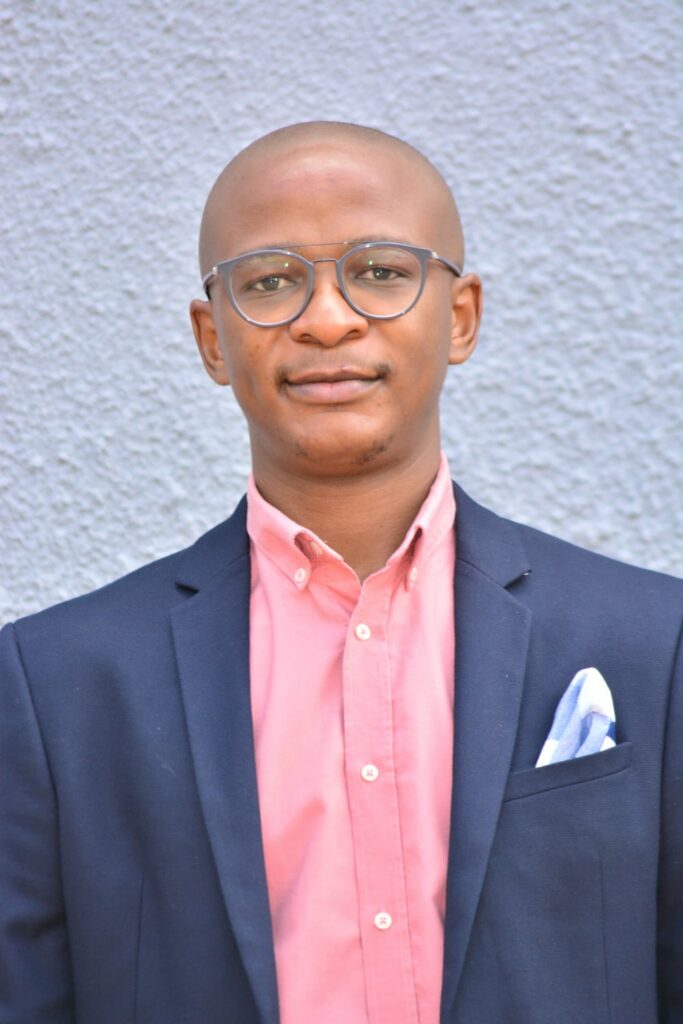
- Joanna Gubman | USA
2011/2012 Fellow | BSW-Solar (Germany Solar Industry Association) | Berlin
My BUKA fellowship was life-changing for me, and it has paid dividends beyond my own personal experience too. During my 2011-2012 fellowship hosted by BSW-Solar (the German Solar Industry Association), I had the honor of presenting on my work at the international Greenbuild conference, put on by the US Green Building Council, as well as at the EU-wide PVSEC conference on solar energy (for which I also had a paper published). I further presented to staff at the Fraunhofer Institute for Solar Energy Systems in Germany and at the California Public Utilities Commission, and collaborated with Deutsche Bank on a report.
I also had two follow-on fellowships. The first, in 2016, was hosted by the Potsdam Institute for Climate Impact Research. My coauthors and I issued a joint report, Transportation Electrification Policy in California and Germany: https://joannagubman.com/2016EVStudy.pdf. The second, in 2019, was hosted by Agora Verkehrswende. My coauthors and I issued the first comprehensive German-language study of e-scooter sustainability, urban impacts, and policy best practices: https://www.agora-verkehrswende.de/veroeffentlichungen/e-tretroller-im-stadtverkehr/ (German) and https://www.agora-verkehrswende.de/en/publications/shared-e-scooters-paving-the-road-ahead/ (English). Both reports have since been used by industry and researchers worldwide.
Other collaborations included hosting a high-level delegation of Baden-Württemberg’s environmental/political leaders at my employer, the California Public Utilities Commission, for a presentation as part of the 2018 Global Climate Action Summit. I also regularly facilitate transatlantic connections in the field of sustainability, whether for visiting German professionals or for fellow Californians who move to Germany. With California and Germany geographically so far apart, there are few transatlantic connections despite numerous formal partnerships. My presence as a bridge supports dozens of others in information exchange and spreading of best practices, and this is something that I do entirely voluntarily and on my own time as a result of the experiences and bonds I developed over my three fellowships in Germany. This is surely one of the cheapest and most collaborative forms of diplomacy that exists – so I am deeply disappointed in the claims that there is not enough budget for this program.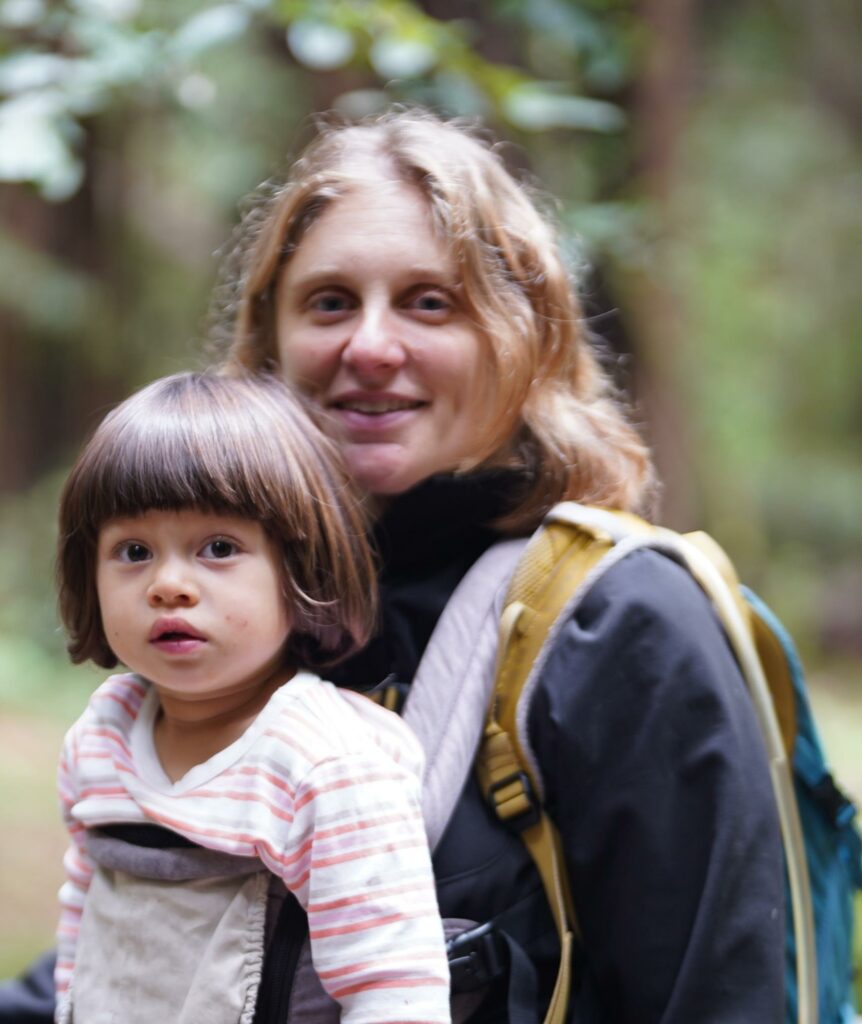
- Nathalia Sautchuk Patricio | Brazil
2020/2021 Fellow | Centre for Global Cooperation Research – University of Duisburg-Essen | Duisburg
I am a German Chancellor Fellow from the 2020/2021 cohort and this fellowship gave me the opportunity to develop my own research in the area of Internet governance, which is an area that requires intense international cooperation. I was able to help establish multistakeholder dialogues between Brazil and Europe, especially with Germany, which still bears fruit today. Furthermore, at the beginning of my fellowship, I connected with the Brazilian Embassy in Berlin and created, together with other Brazilian researchers in Germany, the Apoena Network, which aims to boost Brazil-Germany collaboration in the area of research and development.
This fellowship is a very good example of science diplomacy, putting in place the opportunity to strengthen the scientific and innovation cooperation between Germany and other countries, especially mentioning Brazil. The cooperation between Germany and Brazil will certainly lose very much with the discontinuation of this fellowship. I am sure that having gone through the scholarship is a great plus and my career has reached a different level since then. Finally, I would like to emphasize the privilege of being part of this prestigious network of Humboldtians, which professionally has allowed me to have access to good opportunities and contacts that I would hardly have had without this support.
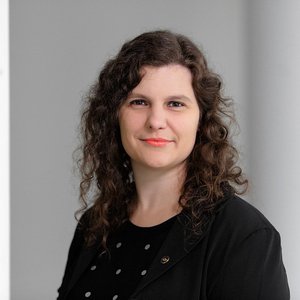
- Rafael Gontijo | Brazil
2018/2019 Fellow | University of Munich (LMU-Munich) | Munich
The German Chancellor Fellowship is a leadership programme that allowed me to establish relevant professional contacts in the fields of international relations and political science.
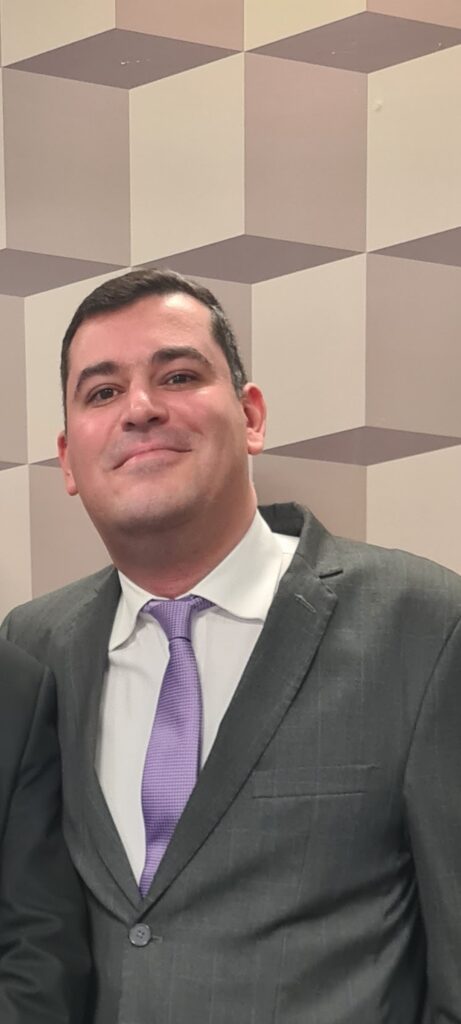
- Christopher Moore | USA
2013/2014 Fellow | The Ecologic Institute | Berlin
The BUKA transformed my career and built a lifetime connection between my family and Germany. Through the network, it led directly to my current position at the California Public Utilities Commission, a lead agency for climate policy. The expertise and understanding I acquired during my BUKA year continues to inform and improve my work. I also remain in contact with experts inside and outside of Germany I met during that year. The BUKA also led to my wife’s position working on Internet health for the Mozilla Foundation, where she works with a Berlin-based team and frequently visits Berlin.
I understand Germany in a way I never would have without this program and connect with Germans wherever I go. I sincerely hope you can continue building connections between our countries by preserving the BUKA program.
- Heidi Obermeyer | USA
2017/2018 Fellow | German Council on Foreign Relations (DGAP e.V.) | Berlin
I am perhaps the most predictable possible participant in the BUKA program- an American working on foreign policy with German roots- and yet it was still an expansive learning experience. My BUKA year was incredibly professionally enriching, but it also gave me the chance to develop even closer relationships with German relatives who I had spent relatively little time with before coming to Germany. My grandfather immigrated to the United States in 1947 after spending much of the war in hiding and on the run from the Nazis because his mother (my great grandmother) was Jewish. It was extraordinarily meaningful to me to return to Germany and expand my understanding of that part of my family history, including a very emotional and impactful visit to Buchenwald with our BUKA group. Because of my experiences living in Germany, I was later able to conduct research on my family that helped me find information about what happened to many of my Jewish relatives during the NS-Zeit. While it was tragic to learn that many of them perished in Auschwitz, it was also meaningful to discover that they had lived just a few blocks away from where my cousins live now in Berlin. It means so much to me to be part of keeping their memory alive.
In addition to strengthening my family ties and all of the valuable professional experience I gained on the program, I was also able to visit German schools with the MeetUS program run by the US Embassy and talk with German students- many of whom had never met an American before- about studying abroad, life in the United States, and learning English. (My photo below is from a lovely visit to a school just outside of Berlin in Bad Saarow.) I had a wonderful time getting to know Germans from all over Germany during my BUKA year and would be terribly sad to see the wonderful program that enabled those connections disappear.
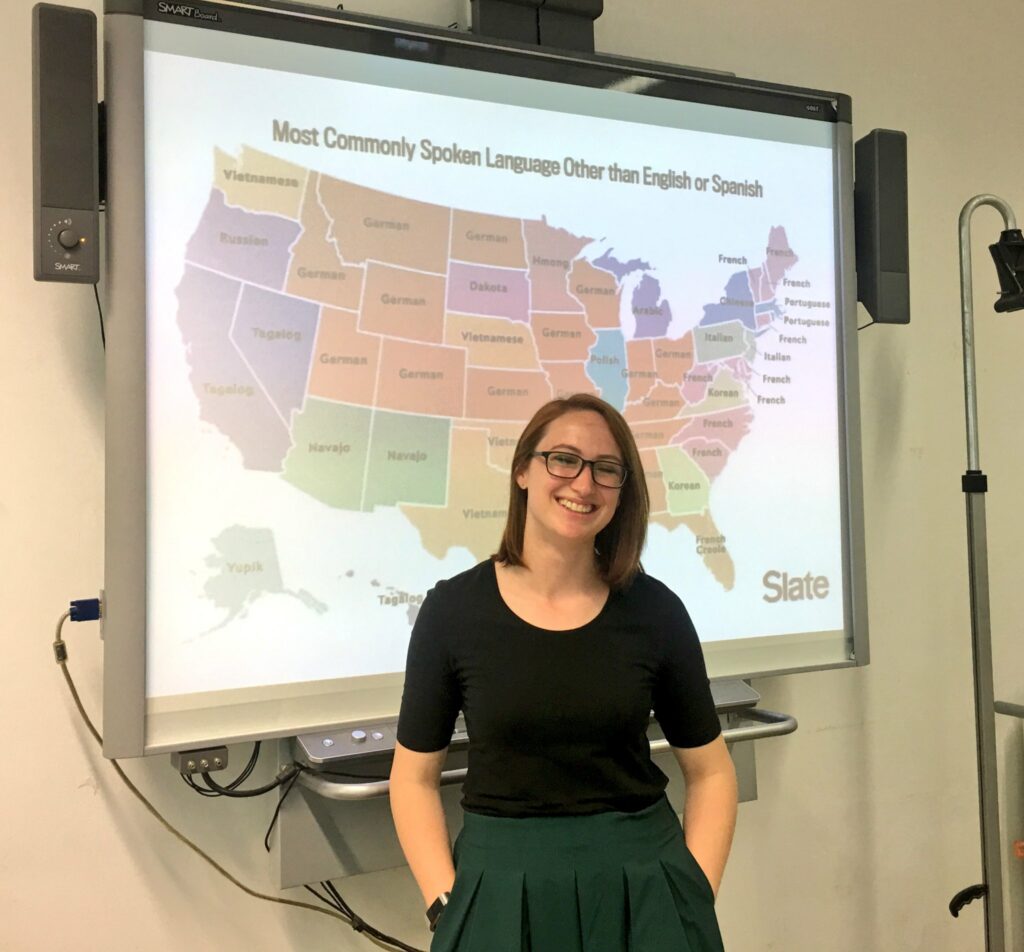
- Tali Padan | USA
2008/2009 Fellow | Alice Salomon University of Applied Science | Berlin
The project that I worked on during my time as a BUKA fellow involved a conflict management curriculum to promote intercultural awareness. Since then, I moved to Denmark and have developed this initiative by starting an organization called Mellem Education. Mellem Education offers workshops to transform ‘tension into reflection’ in order to address the growing polarization that comes out of different perspectives. I have worked with various organizations, corporations and schools, including an inter-faith initiative between Muslims and Jews in Denmark, work whose fruits are especially crucial in these divisive days. This work could not have taken place without my BUKA experience, where I not only experienced the cultural connection of interfacing with Americans, Russians and Chinese but got the resources to develop offerings to bridge communities through deep work with conflict and tension. It would be a shame to cut such opportunities off for future generations who wish to implement similar initiatives towards intercultural understanding and awareness. These types of programs, although they can appear as only ‘fun’, in fact plant hugely important seeds of connection that make a difference in global cooperation and understanding of ‘the other’. They are not to be underestimated in terms of their impact. I strongly support restoring the BUKA program and enabling cultures to connect in a meaningful way.
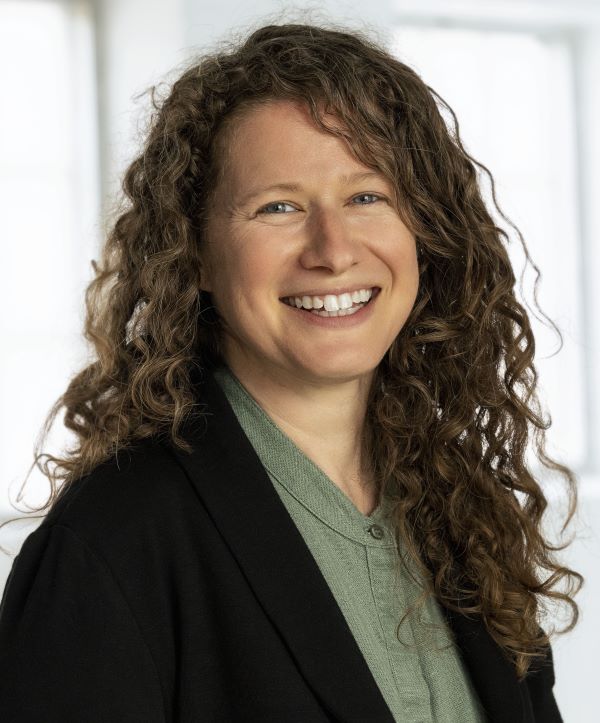
- Erin Taylor | USA
2005/2006 Fellow | KAS, SWP and FE | Berlin
Eighteen years after my BUKA year, I still think about my fellowship year almost every month — my research, the people I met, and the things I learned. Professionally, being a German Chancellor Scholar was a recognition that helped me get positions at the British Consulate in New York, the Carnegie Endowment for International Peace, and Georgetown University’s Berkley Center for Religion Peace and World Affairs. Personally, the fellowship broadened my horizons and left me with a livelong love and appreciation of your country.
One of the things I frequently think back to is what we were told at the AA during our study tour in 2006: ‘Auswaertige Kulturpolitik is an investment in the future without knowing what the future is.’ Now, as the chief communications officer at a non-profit that helps immigrants and refugees, and in a time of tightening budgets, I recognize it’s hard to keep what you cannot quantify. But please know that this fellowship matters. It matters every time I think back to my research project and consider whether the work I do now is communications/public diplomacy or propaganda. It matters every time I have a deeper understanding of the Russia-Ukraine war because I studied with 10 Russian scholars. It matters any time someone makes a stereotypical comment about Germans, I’m able to offer a richer perspective.
From the war in the Middle East, to Russia’s invasion of Ukraine, to the rise of extremism in both of our countries, we are in a moment where we desperately need people who seek to understand different perspectives, learn from each other, and find common ground. The BUKA fellowship is one really important contribution to a better world. I hope you find a way for it to continue.
MfG and vielen dank!
– Erin Taylor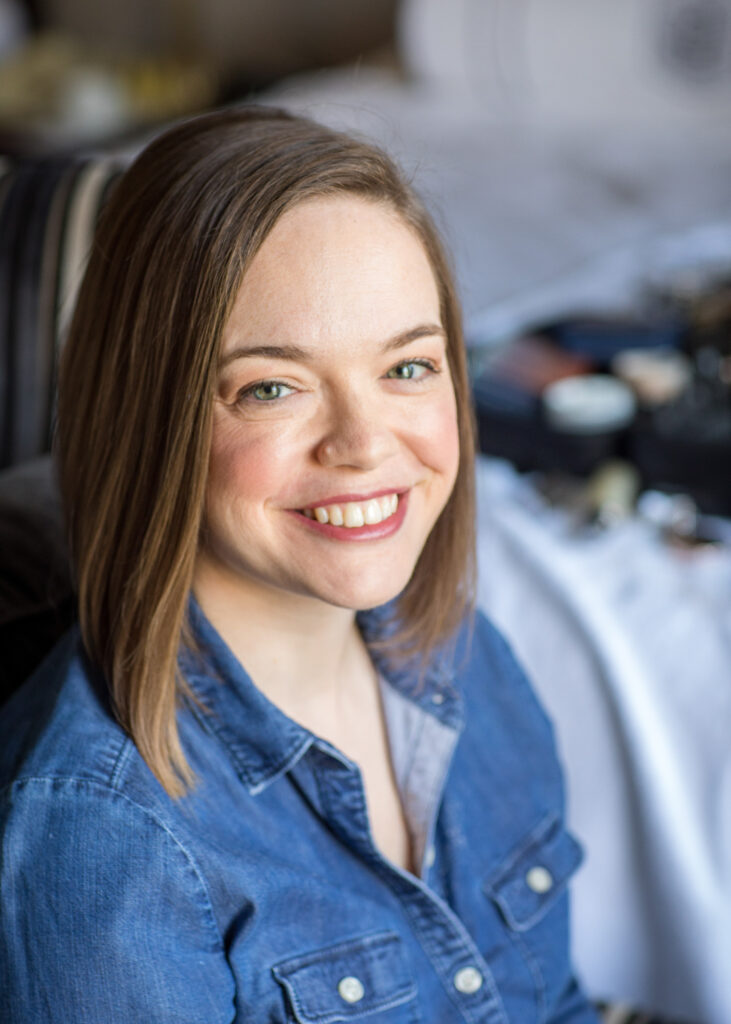
- Svetlana Tvorogova | Russia
2008/2009 Fellow | Bamberg University | Bamberg
The fellowship taught me to rely upon a much wider context than I had had before. Despite my attempts to think globally, I had been lacking the diversity of contexts that BUKAS programme brought to me. Diversity of origins and personal experiences of programme’s fellows was multiplied through our exposure to diverse aspects of life in Germany. Thirty fellows, we kept exchanging ideas and impressions, helping each other to understand what really matters to each of us. I believe this ability to review social processes and phenomena from diverse perspectives has become on of my major professional strengths since the fellowship days.
The importance of networks was my second lesson from the programme. With BUKAS fellows from other years I organised a Humboldt Kolleg ten years after my fellowship, in 2019, and was again amazed by the immense expertise and engagement of the alumni community.
Finally, I discovered a very different Germany through the fellowship: Germany with the long-term focus, green thinking and democratic decision-making. This voice of Germany remains with me ever since. I hope this voice will continue bringing ambitious diverse talented people together.
Wars and conflicts, increasing manifestations of climate change, turbulence of global digital economy challenge our daily lives in many aspects. As a humankind we need new answers to the pressing issues. New voices, new visions, new agendas have to question the existing status quo. Will Germany continue fostering diversity of young leaders in its international partners? As BUKAS alumni I dare hope for that.
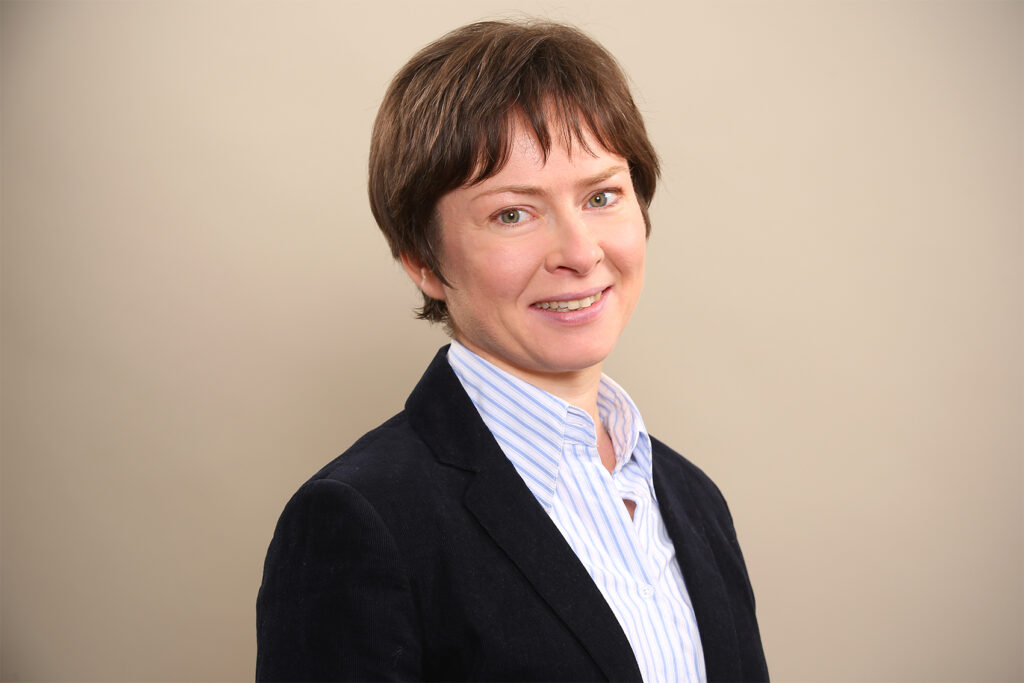
- Wyatt Gordon | USA
2017/2018 Fellow | Abgeordnetenhaus von Berlin | Berlin
I applied for BUKA after a number of years working in state and local government that was beginning to leave me jaded. I knew there had to be a better way of governing that focused more on how to solve people’s daily problems. The BUKA allowed me to embed myself in Berlin’s state government and work on participatory budgeting reform for a whole year. The time I spent as a BUKA fellow reenergized my passion for making government work for the people, and I returned to my hometown to start a career working in state government, writing policy, and helping lawmakers to pass bills to defend the environment, save the climate, and improve my fellow Americans’ lives.
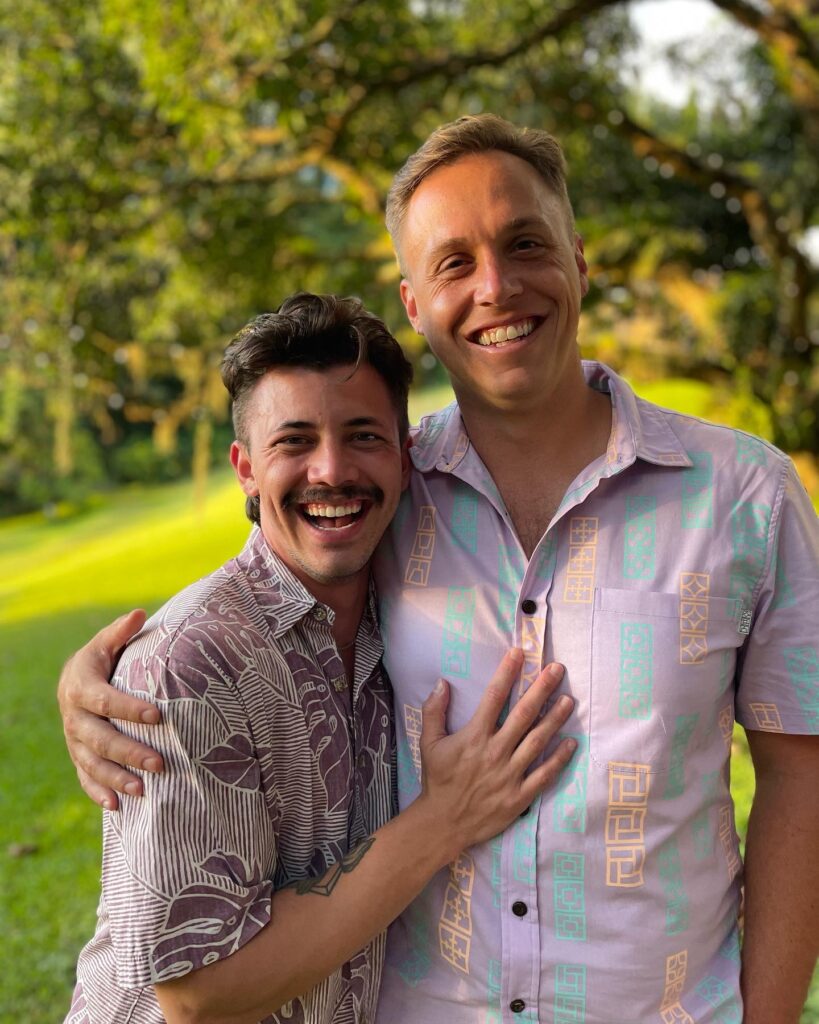
- Evgenia Nedosekina | Russia
2020/2021 Fellow | Ableton AG | Berlin
The German Chancellor Fellowship was a life-changing moment for me. As a curator of cultural events and a music artist myself, I had the opportunity to explore the music scene of one of the most vibrant cities in the world – Berlin. Researching such topics as representation, diversity, discrimination in the music scene gave me insights into the different methods curators and programmers use to create safe spaces, support marginalised communities, foster empathy and inclusivity. Such topics are still taboo in Russia, so I am very grateful for the chance to gather this knowledge across German cultural institutions and organisations.
The fellowship also gave the opportunity to meet incredible individuals from other parts of the world and exchange knowledge, experience, and perspectives. It was an important step for me in furthering my career and making valuable professional connections, which led me to finding my dream job. I believe the German Chancellor Fellowship is crucial to creating a dialogue between people from different cultures, backgrounds and areas of expertise. The cancellation of this programme is a tremendous loss to future cultural and scientific exchange.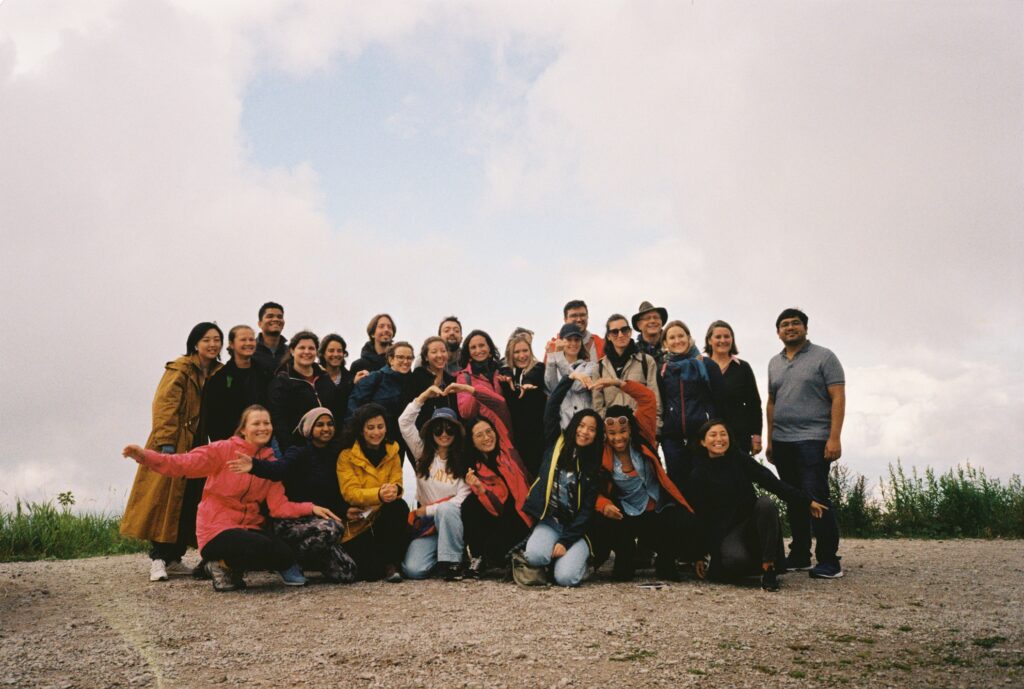
- Yasmin Bowers | USA
2013/2014 Fellow | Econcept | Berlin
The BUKA fellowship was truly life-changing, full of growth, perspective, and challenges. My fellowship focused on social enterprise as a way to raise awareness on community, health, and environment. I was supported by a host that encouraged me to challenge myself and even worked with a glass jewelry maker to help me create a recycled glass jewelry collection inspired by the artistry of New Orleans, LA and Halle, Germany. I continue to boast about my experience as a BUKA and have encouraged several to apply. I really wish and hope that the BUKA will continue to thrive.
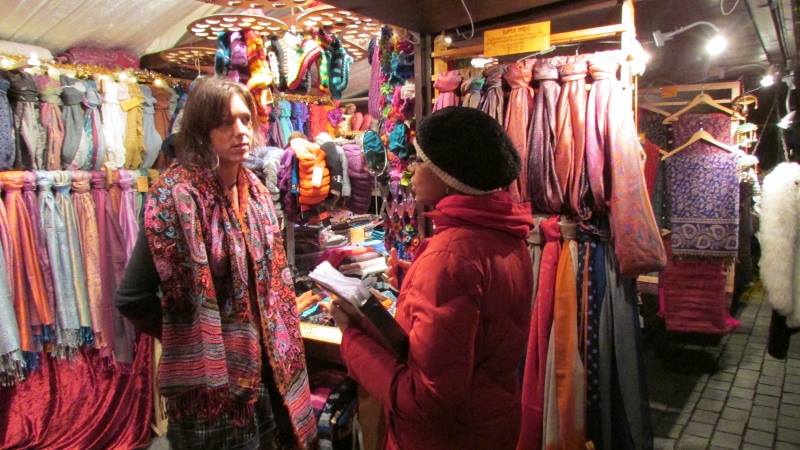
- Terence Renaud | USA
2012/2013 Fellow | Zentrum für Zeithistorische Forschung | Potsdam
The Bundeskanzler Stipendium provided me much needed financial and institutional support for my PhD research in Germany. I was able to build my professional network through my host institute (Zentrum für Zeithistorische Forschung—Potsdam) and conduct field work at German historical archives. Without this fellowship, I would not have been able to complete my degree nor continue in my academic career as a historian. Besides work, my year as a “Buka” was very important in terms of the personal relationships that I developed with my cohort: early career professionals and researchers from China, Russia, and the United States. The fellowship’s cultural programming and study tours were true bonding experiences. We got to know each other while we developed a deeper appreciation of German language, history, culture, and industry. Ten years later, I’m still good friends with a couple of my fellow Bukas. Please continue funding this invaluable program!
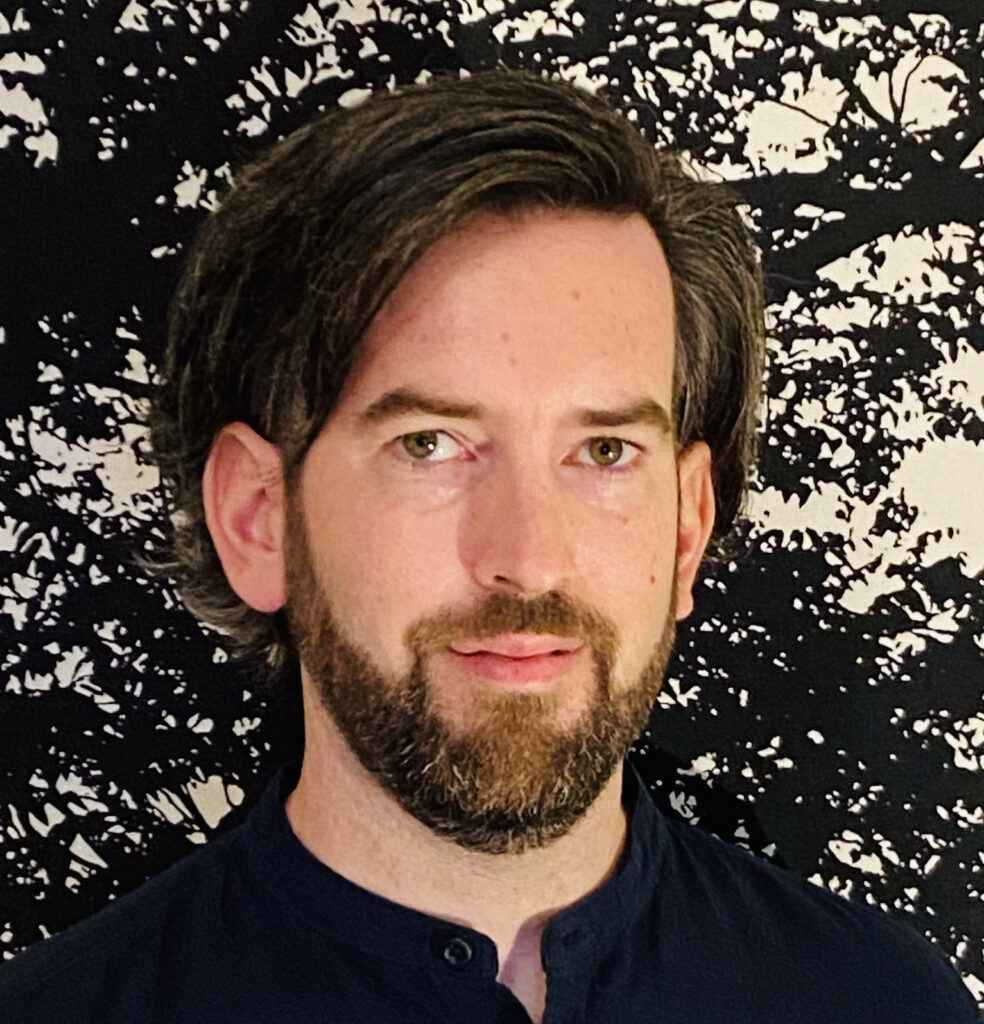
- Piper Foster Wilder | USA
2009/2010 Fellow | Ecologic Institute | Berlin
Heimat: Upon arrival to Germany to begin what would become the single-most life-changing event of my experience, I felt what I didn’t yet have the German word to describe: Heimat. An indescribable essence of home, comfort and belonging. During the course of two years of research, travel, community-building, church attendance, falling in love, building friendship, and becoming in deep awe of German culture and history, I became a loud advocate and endorser of all that it is to be German. Prior to the BUKA fellowship, I had many misunderstandings about German culture (sadly winnowed to a single brief period of National Socialism) but left with awe for German innovation, community, inclusion, engineering, advancement, and the language.
Today, German activities remain a rich part of my life, including sending my kindergartener to the local German immersion school such that she may gain lifelong access to the concept, rich philosophical history, and immense contribution of Germans to modern world.
Had the BUKA not been available, I never would have broadened to become the person I am today.
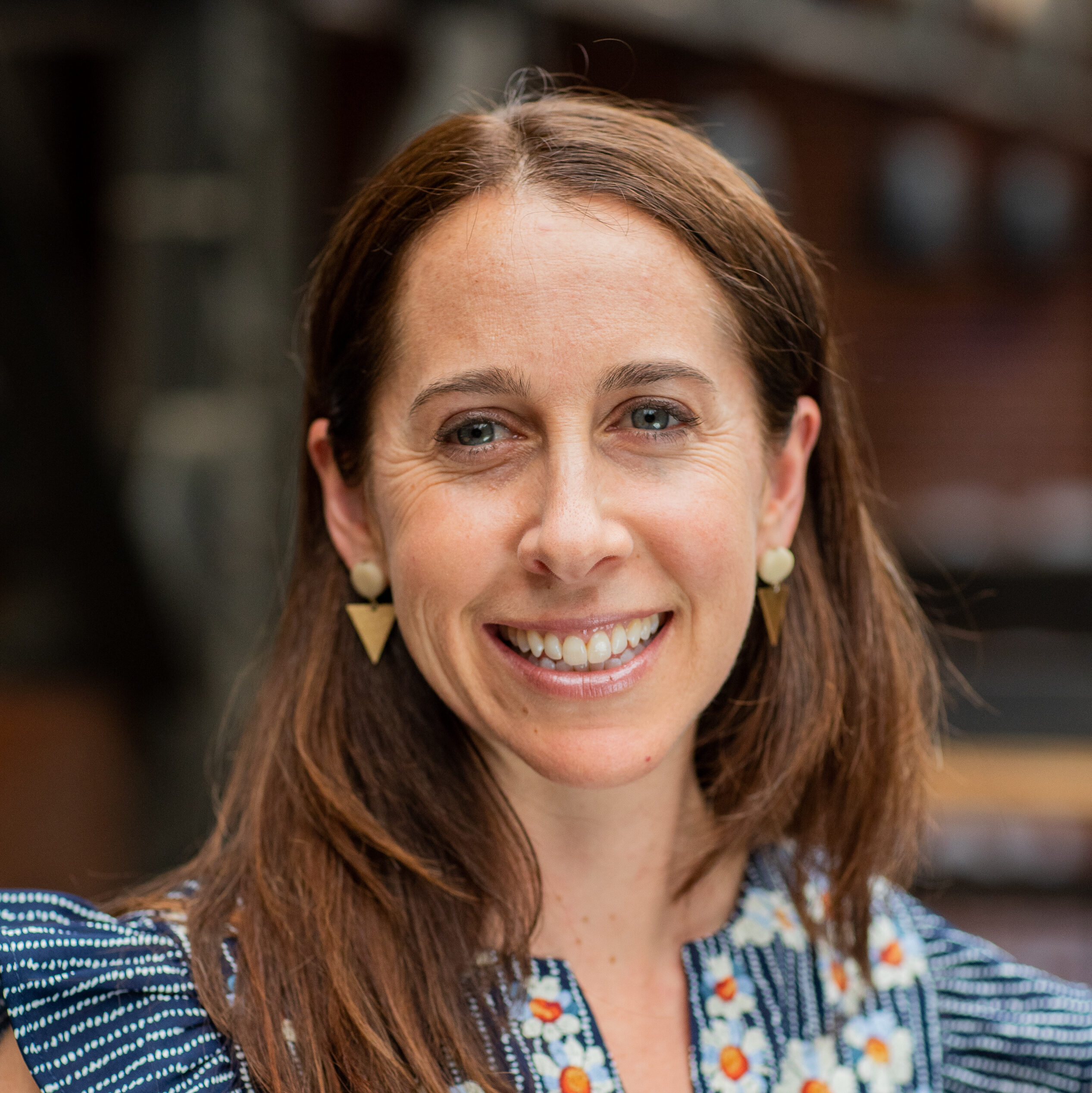
- Rajat Rai Handa | India
2019/2020 | BlackForest Solutions | Berlin
The German Chancellor Fellowship quite literally saved my life during a very difficult time and provided me an opportunity to not only expand my career, but also make the most valuable professional and personal connections that have in turn enabled me to do a lot of good work in the past few years and make a difference in the world and in other people’s lives as well. This program is too valuable to be discontinued and I would strongly urge decision-makers to reconsider their decision.
- Tingting Fan | China
2017/2018 Fellow | University of Goettingen | Goettingen, Lower Saxony
The German Chancellor’s Scholarship has been a transformative experience for me as a young person. It provided me with a unique opportunity to broaden my horizons significantly and connect with promising individuals from around the world. Regardless of our diverse backgrounds in terms of language, religion, and nationality, these young people and I were able to foster a deeper understanding and break down prejudices through our exchanges.
This scholarship instilled in me a profound appreciation for Germany and its culture, which has shaped my career path significantly. Today, I am proud to be an attorney specializing in international practice, offering legal services to local companies seeking to invest in Germany, as well as German companies expanding their operations abroad.
Looking ahead, my aspiration is to further contribute to building bridges of understanding between Germany and the country where I reside. This endeavor aligns perfectly with my experiences during the German Chancellor’s Scholarship, and I am committed to continuing the work of fostering international cooperation and mutual respect.
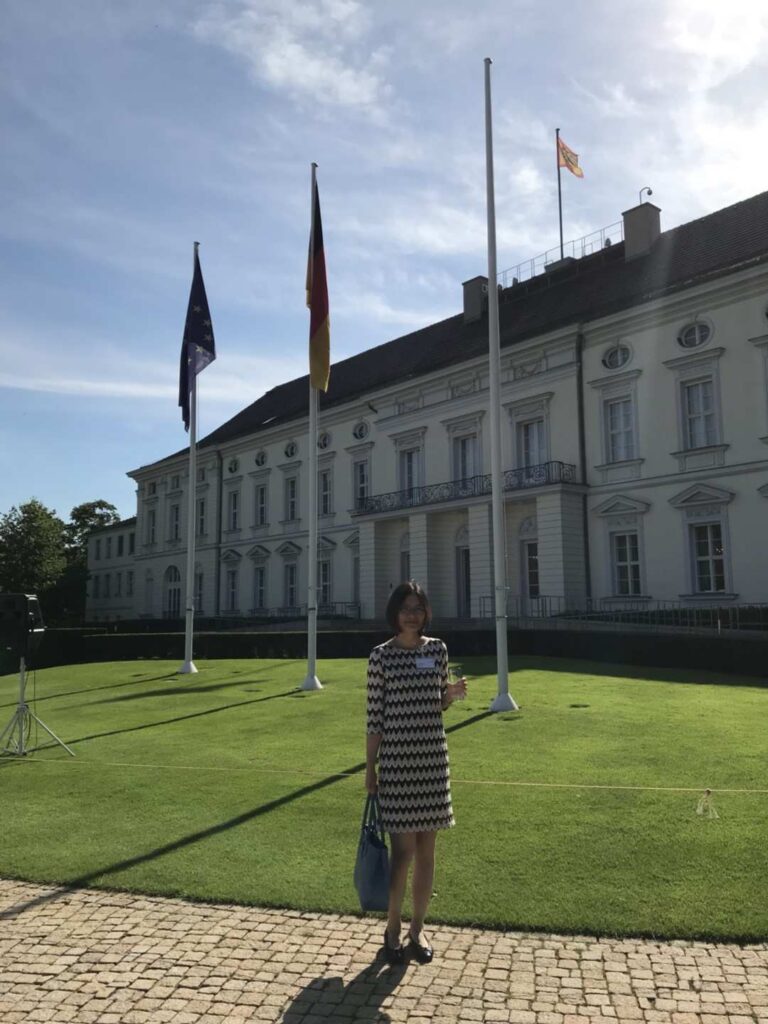
- Débora Monteiro Moretti | Brazil
2018/2019 Fellow | University of Bonn | Bonn, Nordrhein-Westfalen
Thankfully and after much effort, I was awarded with many fellowships in my life.
None of them can compare with the BUKA fellowship.
I applied for it looking for a new chapter in my life and I got it.
– I got to understand what means to make research with support.
– I was challenged every day with people and ideas that made my world more diverse, more open and colorful.
– I learned how to value myself against some odds and realize I have done a lot.Furthermore, everything should always be a win-win situation.
The journey and transformation has been exciting and has brought me together with my current team.
A spin-off from the University of Munich dedicated to making agriculture to climate-neutral. An amazing technology developed in Germany.I joined the team in 2022 and was selected among 40 other candidates: Germans, Europeans, non-Europeans. And I have been responsible for taking this team forward and achieving milestones that were not possible before.
What made me different from the other non-BUKA candidates? The ability to fit in, to adapt, to listen. And, of course, the BUKA project, which was directly related to “precision agriculture”.
The BUKA fellowship is not about funding nice and varied projects. It is about making the improbable possible for a better world, especially in a time of war.
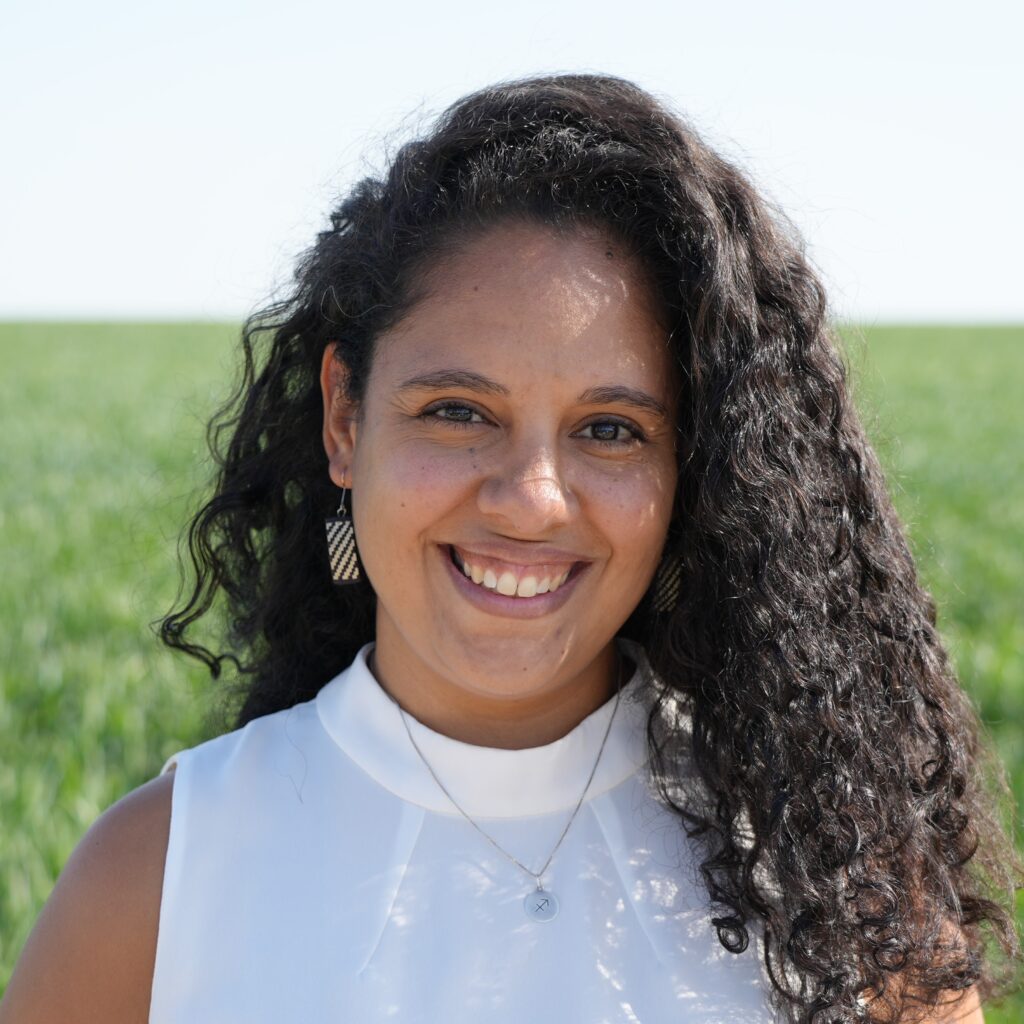
- Ramon Luz | Brazil
2017/2018 Fellow | Zeitpfeil | Berlin
I come from a financially disregarded family in the countryside of Brazil, and the German Chancellor Fellowship gave me the opportunity to compete on a plain field with high-level professionals on an international stage. It literally changed my life by taking me from local journalism in the Brazilian countryside to filming a documentary in Berlin. The fellowship’s networking opportunities showed me new paths, like earning a master’s degree in a foreign language in Germany, which I did. That brought me to where I am today: administrating media projects in Latin America that are funded with German and European resources. This is a future I could have never imagined, either for me or for my family. It saddens me to think others like mine wont have such a special opportunity anymore.
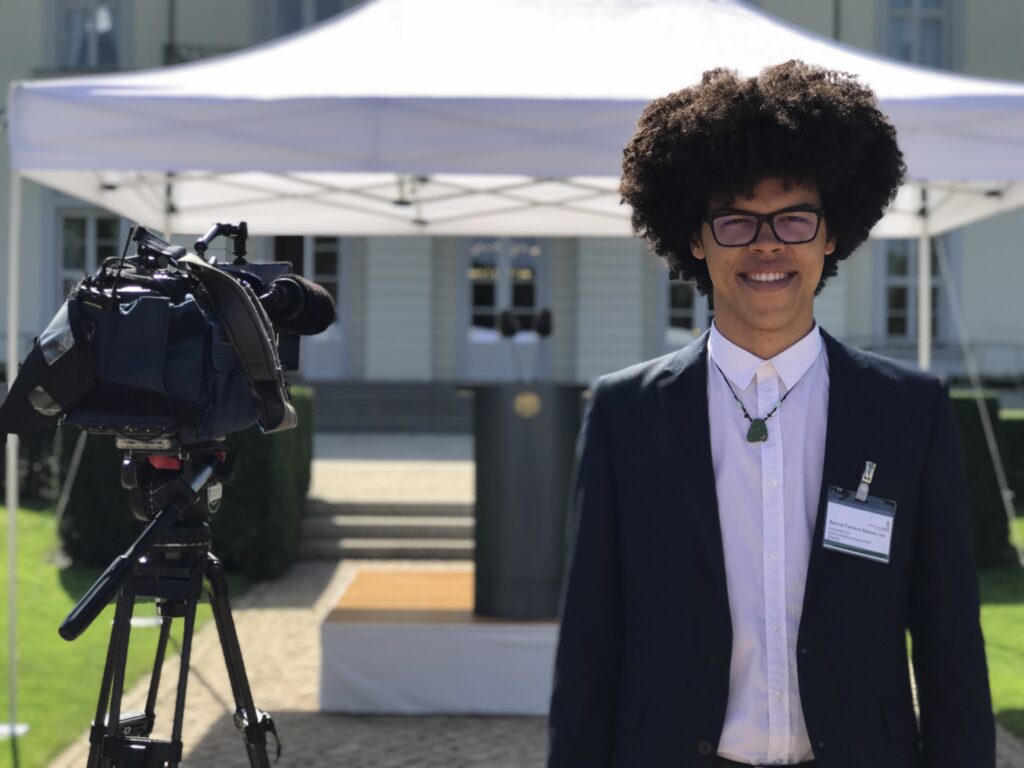
- Ricardo Beck | Brazil
2017/2018 Fellow | Permakultur Akademie | Berlin
Being a BUKA was the leap in quality that I needed for my professional development. I come from a lower-middle class family in Brazil and dedicated myself to environmental projects, since I am driven by the cause. Being BUKA allowed me to lift my head, to look at my projects with more professionalism, to sit at important tables and to speak (and be heard) by several audiences. Today, I lead European fund projects, I am part of expert groups advising the European Commission, I influence environmental policies at regional and national level, alongside contributing to empowering rural communities with the digital tools we develop at Esférico.
The German Chancellor Fellowship programme gave me the confidence and professionalism I needed to go further.
Other Brazilians and young people from emerging countries deserve to have this opportunity too. #BUKAbleibt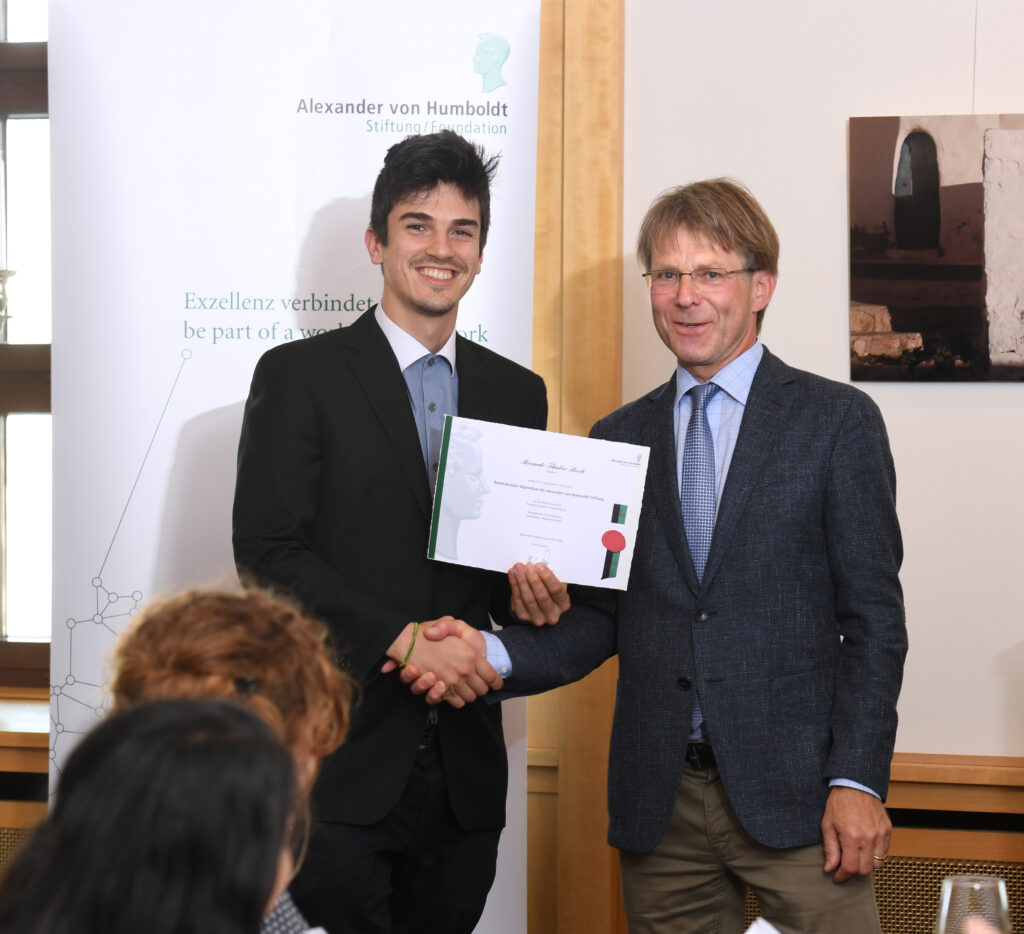
- Samuel Hunter | USA
2017/2018 Fellow | Hochschule für Schauspielkunst Ernst Busch | Berlin
The BUKA Fellowship gave me the time and space to gain detailed insights into the workings of the theater industry in the US and Germany. As an artist, I was looking for a way to make it easier to make work, but what I discovered was new years-long project: reforming theater funding in California. I published my proposal in American Theater Magazine and have been working with my representative to create an ensemble repertory system like that in Germany. In addition, the people the fellowship allowed me to meet have become long-term collaborators. I had my German debut as a writer in 2021 in Berlin, and have been able to bring German artists to work with me in LA and Chicago. It’s been nothing short of life-changing.
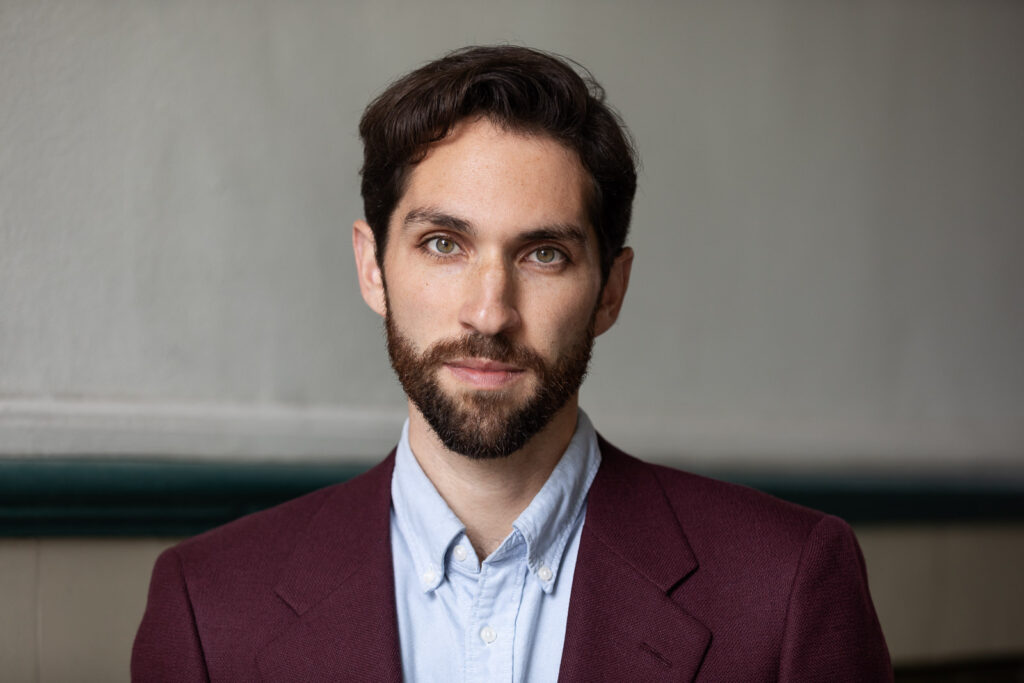
- Elizabeth Ponte de Freitas | Brazil
2018/2019 Fellow | KMM Institut für Kultur- und Medienmanagement/ Hochschule für Musik und Theater | Hamburg
Participating in the German Chancellor Fellowship program of the Alexander von Humboldt Foundation between 2018 and 2019 was a milestone in my professional and personal journey. It is very rare in the field of cultural management to find professional development opportunities abroad outside the academic context and with as much consistency, autonomy and trust as the Foundation places on its fellows.
Thus, the German Chancellor Fellowship emerged as a unique opportunity and became a central element in my development over the past five years. The experience was not limited to living abroad; it also allowed me to meet highly qualified professionals in various fields and deepen my knowledge of the cultural sector in Germany and other European countries. This immersion led to my project “Quality for Culture,” (www.qualityforculture.org) which generated online publications — a whitepaper and a resource guide in English and Portuguese — downloaded more than 10,000 times and which opened new professional doors in Brazil.
Upon returning to Brazil, in early 2020, I was determined to apply the acquired knowledge and experience to contribute to the development of the cultural sector in a very delicate moment for Brazil. In nearly four years since then, I have become a consultant, working with various cultural institutions in Brazil, in addition to being a research associate at the Observatory of Creative Economy in Bahia, participating in national researcher on cultural public policies.
Even from Brazil, I maintained the connections I built in Germany. I emphasize the lasting bonds with Prof. Martin Zierold (KMM Hamburg), who provided full support for my research. Additionally, I became a contributor to the Arts Management Network portal (Kulturmanagement Network GmbH), participated in a book on International Arts Management edited by Prof. Raphaela Henze (Heilbronn University), and in 2023, was invited to teach in the master’s course in Arts and Cultural Management at Leuphana University in Lüneburg.
I hope that the suspension of the program is reversed, so that many more people can have the same transformative opportunity in their careers and lives.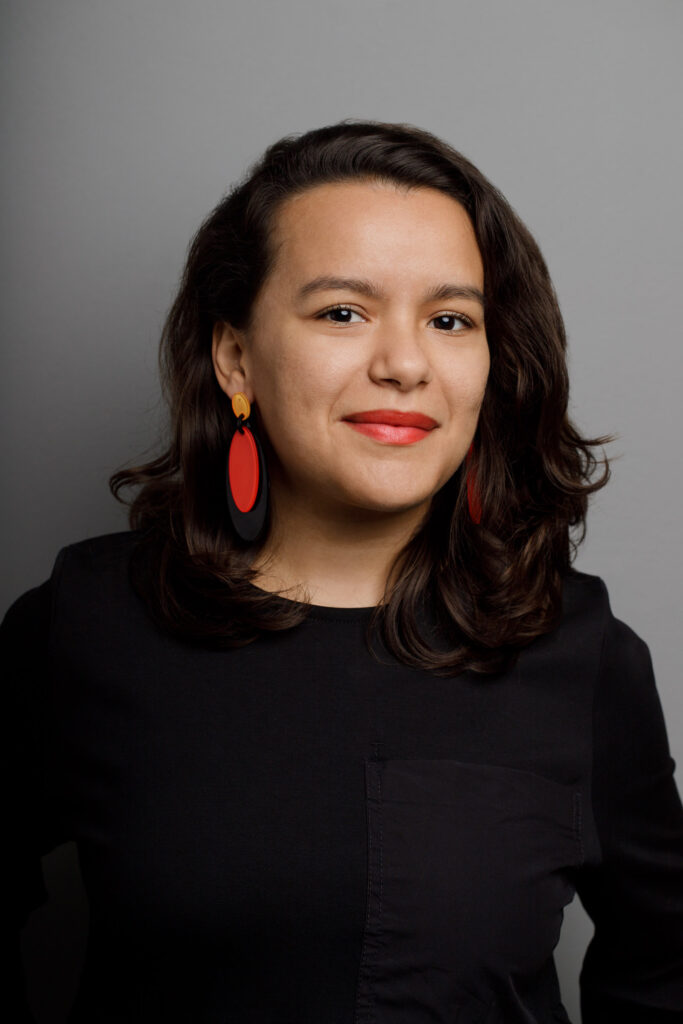
- Luisa Feiten Bonin | Brazil
2021/2022 Fellow | Maecenata Foundation | Berlin
The existence of the German Chancellor Fellowship enabled me to transform over a decade of experience in the third sector in Brazil into profound knowledge about the best listening practices for foundations and funders, aiming to foster enhanced connections in the social impact sector.
As a Visiting Researcher at the Maecenata Foundation in Berlin, I received comprehensive support to innovate and study a topic that is still emerging in Europe and Germany, compared to its popularity in the U.S.: Funder listening practices.
Following a trip to the U.S., where I attended a congress and participated in a course, I conducted my research in both Germany and Brazil. This research journey enabled me to publish my paper, collaborate with Philea (Philanthropy Europe Association) to publish their first report on this topic, and work with GIFE (Grupo de Institutos, Fundações e Empresas) in Brazil.
The pivotal element of this extraordinary journey was the Alexander von Humboldt Foundation’s German Chancellor Fellowship for Prospective Leaders. This program supported not just my research but also enriched my life during my 1-year and 4-month stay in Germany. The fellowship provided me with an unparalleled opportunity to grow as a leader, expand my professional network, and contribute meaningful insights to my field.
In light of these invaluable experiences and the support I received, I fervently advocate for the continuation of the German Chancellor Fellowship. It stands as a unique platform that empowers leaders from diverse backgrounds to make a substantial impact in their fields and promotes international collaboration, with Germany and the German culture of valuing science as their common ground. This fellowship is more than a program; it’s a catalyst for positive change, and its continued existence is crucial for nurturing future leaders capable of making a global difference, always connected with Germany.
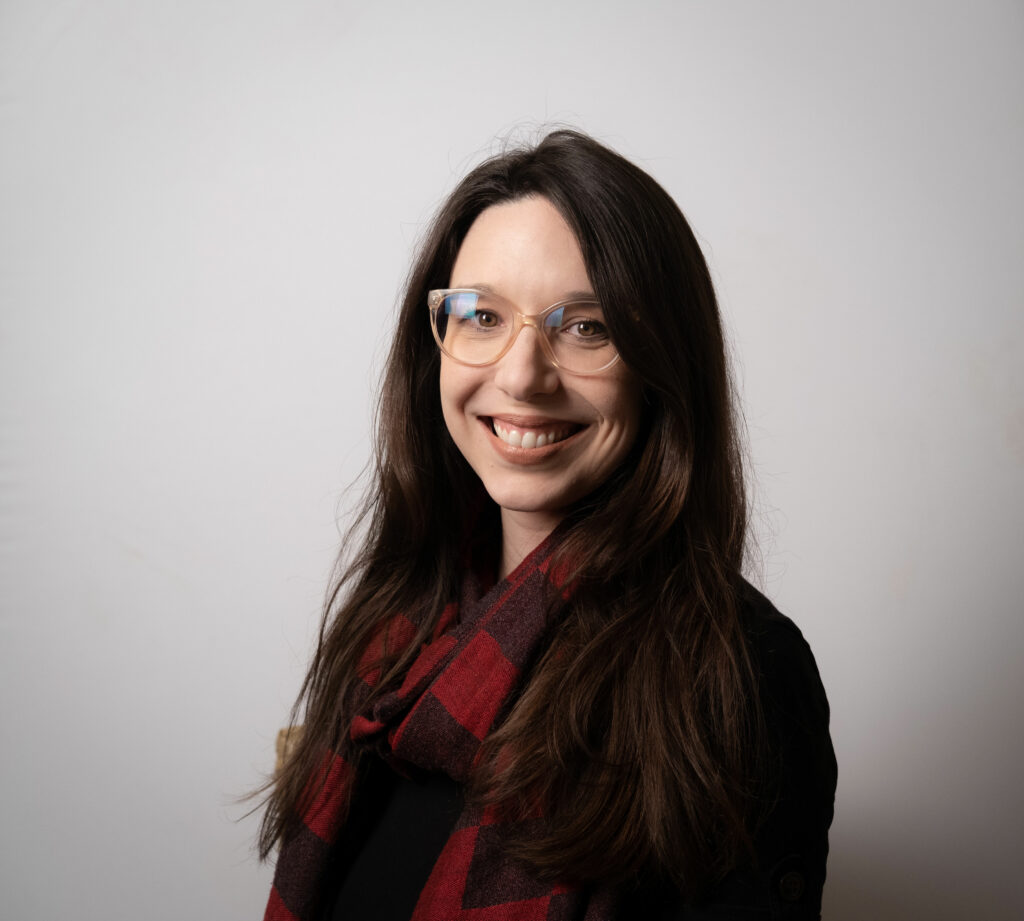
- Amrita Gandikota | India
2021/2022 Fellow | German Startup Association/GINSEP | Berlin
It has been one-of-a-kind, unique space for young leaders across sectors to create a bridge between Brazil, China, India, Russia South Africa and the USA with Germany since its inception.
I am extremely grateful for the doors this program has opened up along with creating deep bonds with a bunch of kindred spirits across the globe!
The fellowship has been extremely instrumental in developing my company and my growth as an entrepreneur. Being in Germany and driving international cooperation between India and Germany is very strategic and the fellowship is the only thing that has made it possible.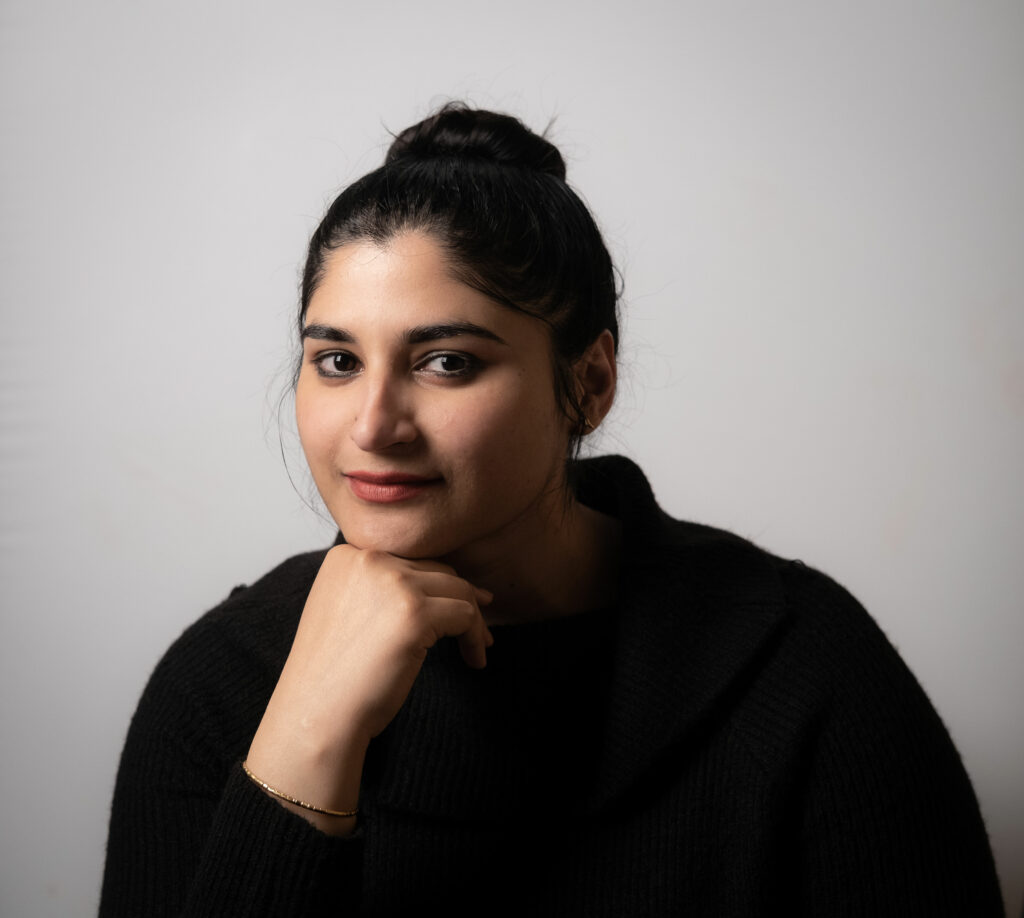
- Bhimashankar Shetkar | India
2021/2022 Fellow | (B)Energy GmbH | Neuhäusel, Rheinland-Pfalz
My project was on livestock manure management practices in Germany and applicability for India. The fellowship helped me in developing contacts in German Biogas Industry which I am able to use in my current role as the COO of a company. This has helped me creating partnerships between companies of both countries for executing projects.
- Bruna Romano Pretzel | Brazil
2017/2018 Fellow | Arbeitskreis deutscher Bildungsstätten e. V. | Berlin
I was awarded the German Chancellor Fellowship in 2017, at a turning point in my career, having accumulated some years of research and leadership experience in the field of legal education in São Paulo, Brazil. Over those years, as threats to democracy in Brazil and other countries grew, I became more certain of the importance of civic and human rights education and the urgency of dialogue between academia and civil society organizations. Motivated by a previous stay in Germany as a law student, when I became acquainted with the country’s diverse and democratic civic landscape, I designed a research project with a practical approach, aiming to observe and participate in different environments of the German civic education landscape, register good practices and key issues, and intensify Brazilian-German dialogue in this field. My research focused on adult education, aligned with my belief in the importance of lifelong civic education in a world where social inequalities are omnipresent and ever-growing.
The Arbeitskreis deutscher Bildungsstätten e. V. (AdB, Berlin office) kindly agreed to be my host institution for this research project and offered me the best support and academic freedom I could have asked for. I had the best of both worlds, researching in proximity to education practitioners, while having access to the most recent scholarship in the field. From an academic, political, and personal perspective, this was a life-changing experience that strengthened my belief in the power of dialogue. I was in constant exchange with education professionals all over Germany and at the AdB office in Berlin, learning about different approaches to civic education in Germany. I was also able to report my research to AdB and, with a critical perspective based on my experience in Brazil, contribute to further understanding the diversity of initiatives and approaches to civic education for adults in Germany. My report, written in German, was published in the journal Außerschulische Bildung (vol. 1/2019), edited by AdB.
Inspired by my BUKA year, I have joined the vibrant network of Latin American migrants in Berlin, where I now live, and have been working on the conception of a project for democracy education in migration society, in dialogue with Brazilian and other Latin American civil society actors. Also inspired by my fascination for German language and society, I will finish in the near future a Bachelor of Arts in German Studies (Deutsch) and Social Sciences at Humboldt University, which provides a solid academic basis for my work in civil society. I hope the German Chancellor Fellowship continues to inspire future leaders to work for global understanding and democracy.
(The photo was taken on June 21st, 2018 by Friedrun Erben, at an informal gathering for co-workers of the AdB Berlin office.)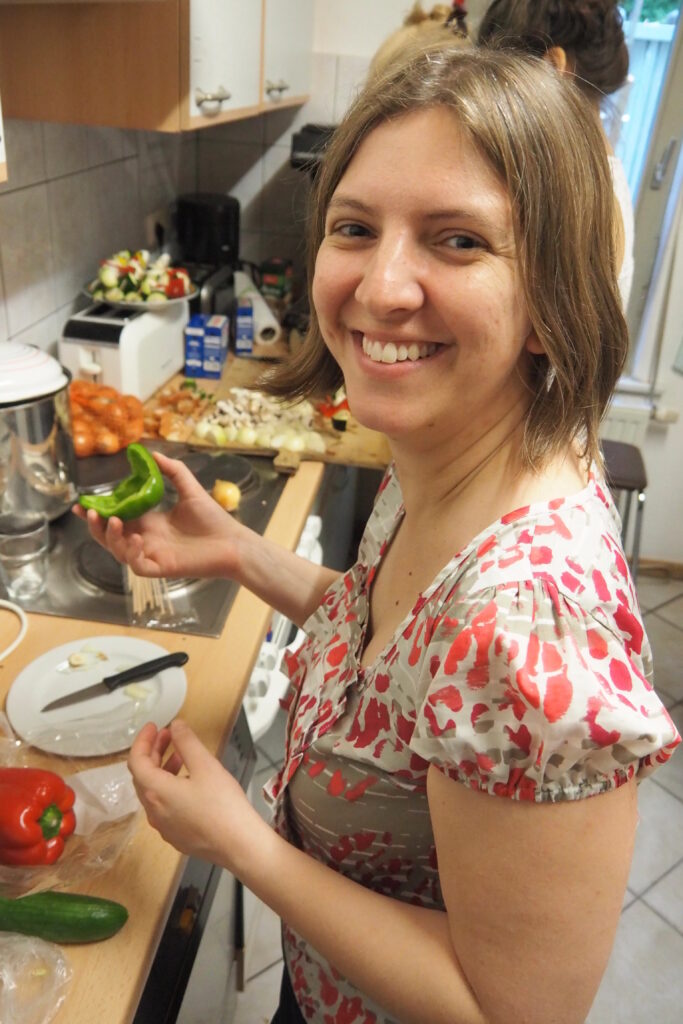
- Alice de Moraes Amorim Vogas | Brazil
2020/2021 Fellow | Office of MdB Lisa Badum (Bündnis 90/Die Grünen), German Bundestag | Berlin
The fellowship was very important for me to enable my professional development as a global climate politics expert and not a Brazilian expert only. Based on the relationships I developed because of the fellowship itself and due to opportunities that emerged while I was leaving in Germany I’ve managed to get an international job right after the fellowship ended and now, upon my return to Brazil, I accepted an invitation to go back to the organisation I used to work before the Fellowship, but promoted to a position of Partnership Director. I continue to stablish a good relationship with my host and the work in my research topic continues to evolve, even though not in an academic fashion. My personal life has also changed, my daughter became fluent in German and had developed a strong bond with German culture and life. I will be forever thankful for this opportunity.
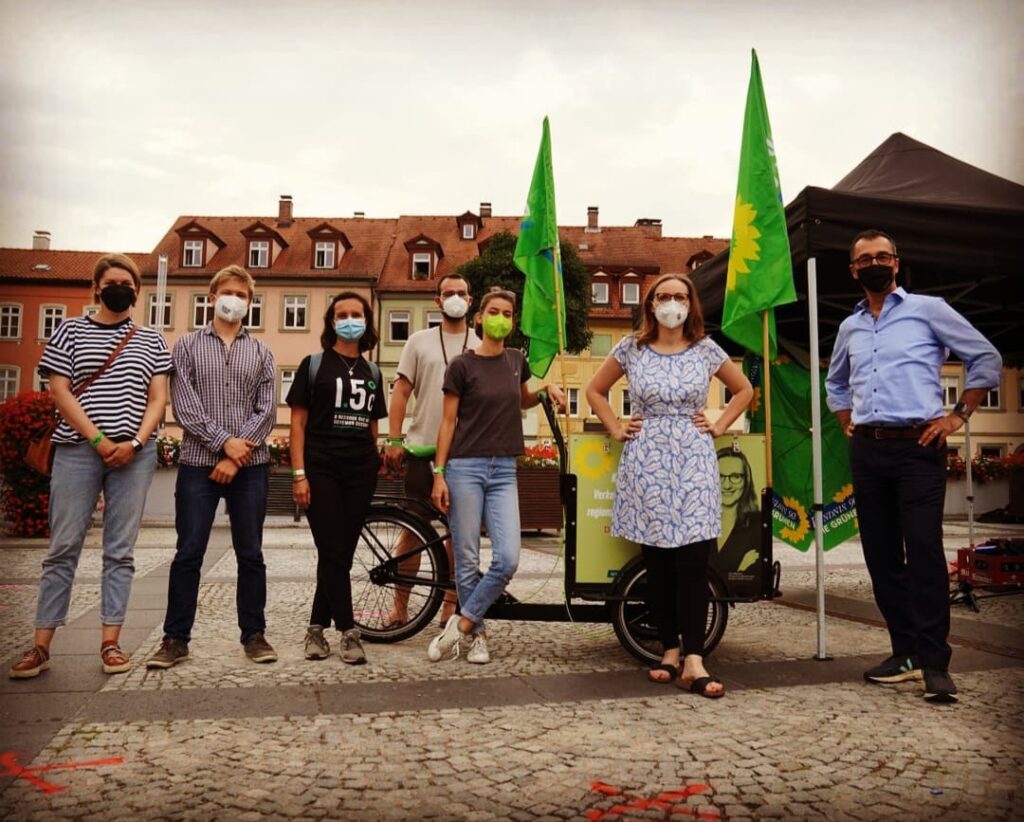
- Aditi Haruray | India
2020/2021 Fellow | Juristische Fakultät, Universität Augsburg | Augsburg, Bavaria
I am sincerely thankful for the German Chancellor Fellowship, it has led to several remarkable opportunities in my and my fellows’ academic and professional career, provided a unique platform to scientific researchers such as myself and from across the globe to collaborate on knowledge and research topics. This collaboration has contributed to not just strengthening international relationships with Germany but also to the German economy. It holds a prestigious place in India (and internationally) and is considered as a significant milestone in furthering Indo-German scientific exchange and foreign relations. I am willing to support the Alexander von Humboldt Foundation in keeping the German Chancellor Fellowship afloat however I can in my capacity, however, shutting doors to such a significant and tested methodology to further international scientific exchange will only lead to losing out on great thinkers and leaders of the future who can certainly contribute to the German economy.
- R Stein Wexler | USA
2020/2021 Fellow | Zentrum für Kunst und Urbanistik | Berlin, Berlin
My fellowship launched my career as an international public artist.
When I moved to Berlin in 2020 I could not yet call myself an artist. When I arrived, I started researching the history of Haus der Statistik and ways that creative practices engage with the past, present, and future of local contexts.
As it turns out, Haus der Statistik stands today exactly where Gerlachstraße Jüdisches Altenheim was located at Gerlachstraße (Lietzmannstraße until 1938) 18-21, a street which no longer exists. During WWII, the home was seized and used as a Nazi collection camp, “Sammellager,” for elderly Jews being transported to concentration camps. First, the home’s more than 250 residents were deported from their home to Theresienstadt. Then, over the course of the 1942-1943 winter, more than 2,000 elderly jewish people were held at this site and then transferred to concentration and extermination camps.
In the late 1960s, structures on the site that were not destroyed by Allied bombing as well as the former street grid were razed to make way for the DDR’s Haus der Statistik and Karl-Marx Allee residential complex. While the Altenheim had been requested to be listed under historic preservation in 1955, since its demolition it has since been erased from public memory.
What followed from my discovery of this history was not only numerous public art installations, collaborations with neighborhood groups, developers, activists, and other artists but also subsequent funding from neighborhood associations and the Berlin Senate for Culture and Social Cohesion.
In fact, these partnerships continue to flourish to this very day and the project is only growing from here. Recently, a resolution was passed at the District of Mitte level to support a permanent memorial at Haus der Statistik. With this experience as the foundation of my public art practice, I have since developed projects in Krakow, Poland; Raleigh and Durham, North Carolina USA; and Chisinau, Moldova.
Without the German Chancellor’s Fellowship, I would not have had the freedom, support, and social network to achieve what I have today.
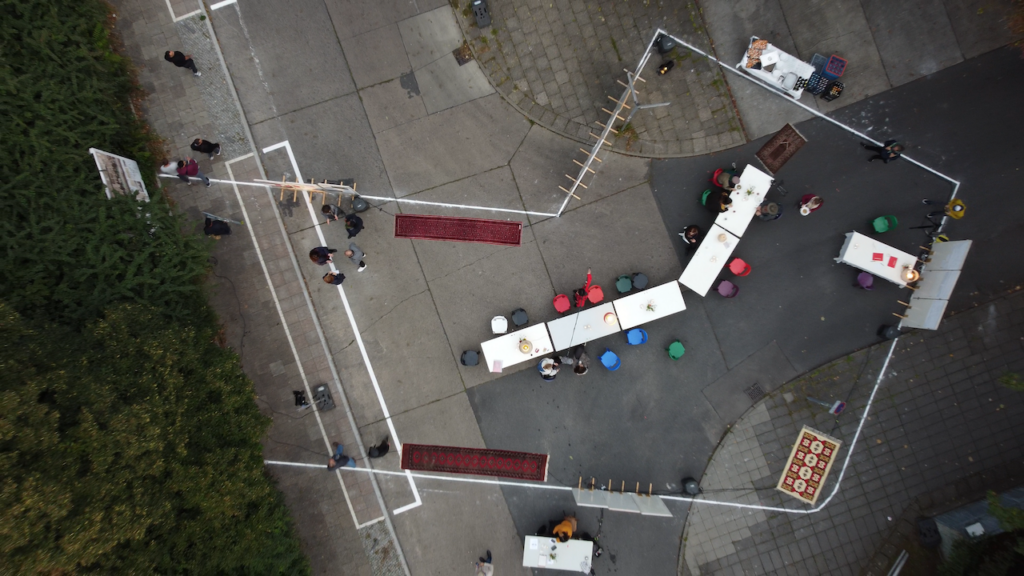
- Caroline Menezes | Brazil
2015/2016 Fellow | ZKM | Zentrum für Kunst und Medien | Karlsruhe, Baden-Württemberg
During my fellowship, I embarked on a transformative one-year project “Virtual Bridge: Connecting Art and Technology between Brazil and Germany” at ZKM (Zentrum für Kunst und Medien) in Karlsruhe, Germany. Established in 1989 as a contemporary art museum, ZKM has evolved into a pivotal institution for producing, presenting, researching, and educating in the realm of art and media. Under the mentorship of Peter Weibel (1944 – 2023), the esteemed director of ZKM, I not only conducted workshops but also curated and organized a vibrant cultural program in Brazil as an extension of my experience at ZKM.
This initiative culminated in the creation of the ‘More Performance’ festival in Rio de Janeiro, showcasing emerging talents from Brazil and Europe, and a groundbreaking exhibition titled ‘The Messenger’, focusing on Peter Weibel’s illustrious career. Remarkably, this exhibition marked the very first of its kind in Brazil, proving my commitment to cultural exchange. To make these events possible, supported by the prestige of being a BUKA fellow, I diligently secured funding and even published a bilingual book, featuring insightful contributions from the participating artists. These experiences profoundly reinforced my dedication to fostering cultural connections on a global scale.
Several years have passed, and I continue benefiting from the learning from the fellowship. Over these years, I have actively participated in various projects aimed at building intercultural and interdisciplinary connections. I have steered my career towards the convergence point of the creative industry, science, and technology. Currently, I serve as the co-director at the Institute for Digital Transformation and Innovation at the Business Law School in Berlin. In this role, I facilitate the exchange of knowledge between scientific and theoretical realms and the business sector.